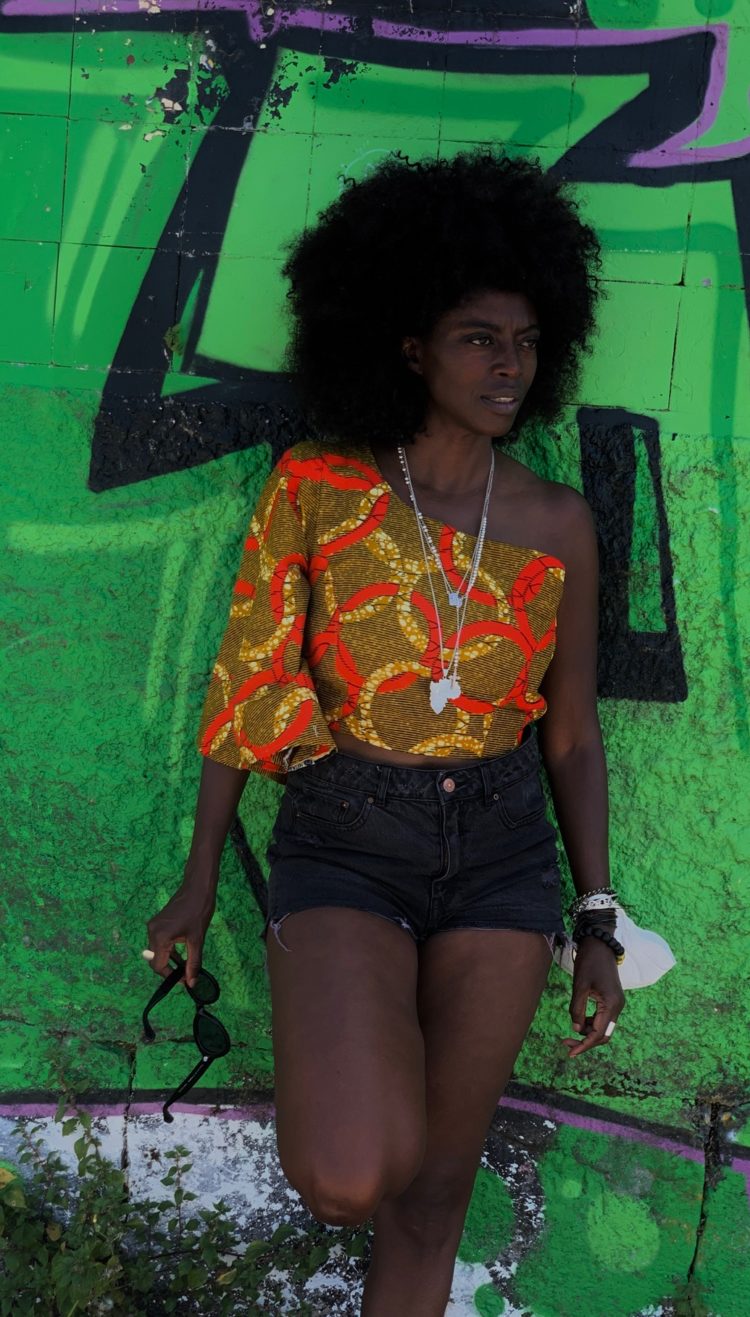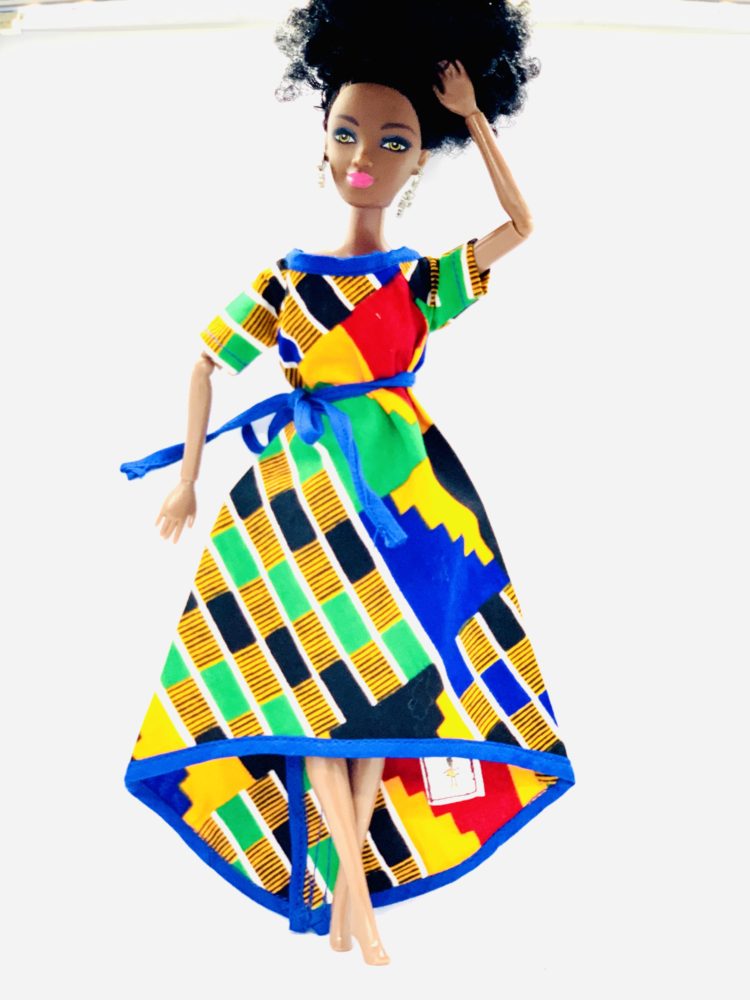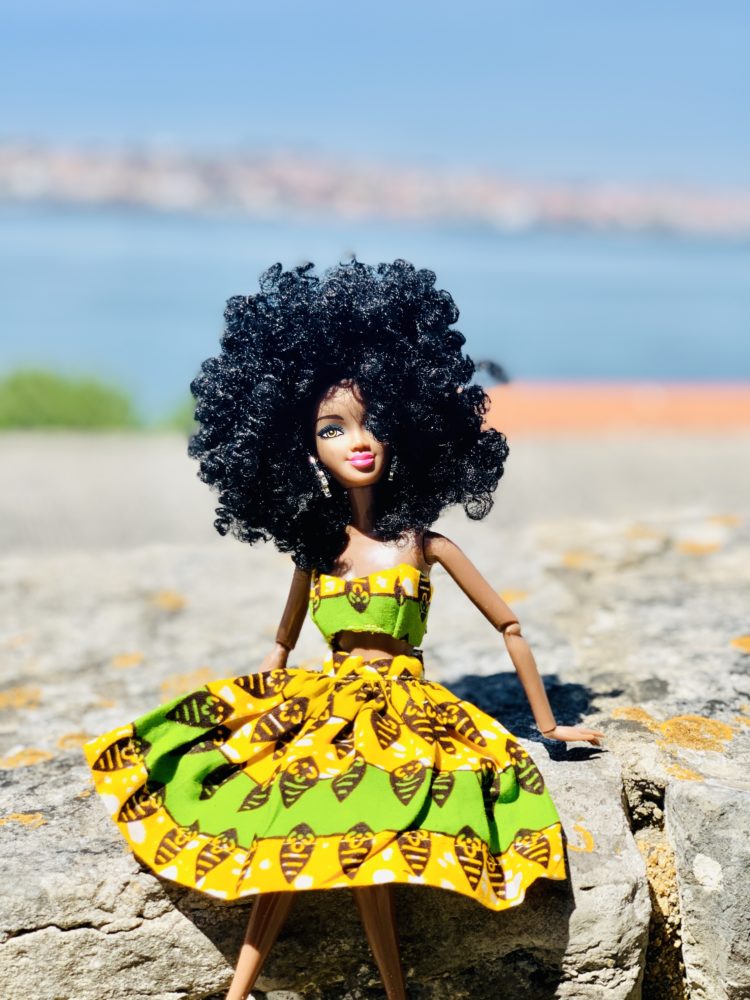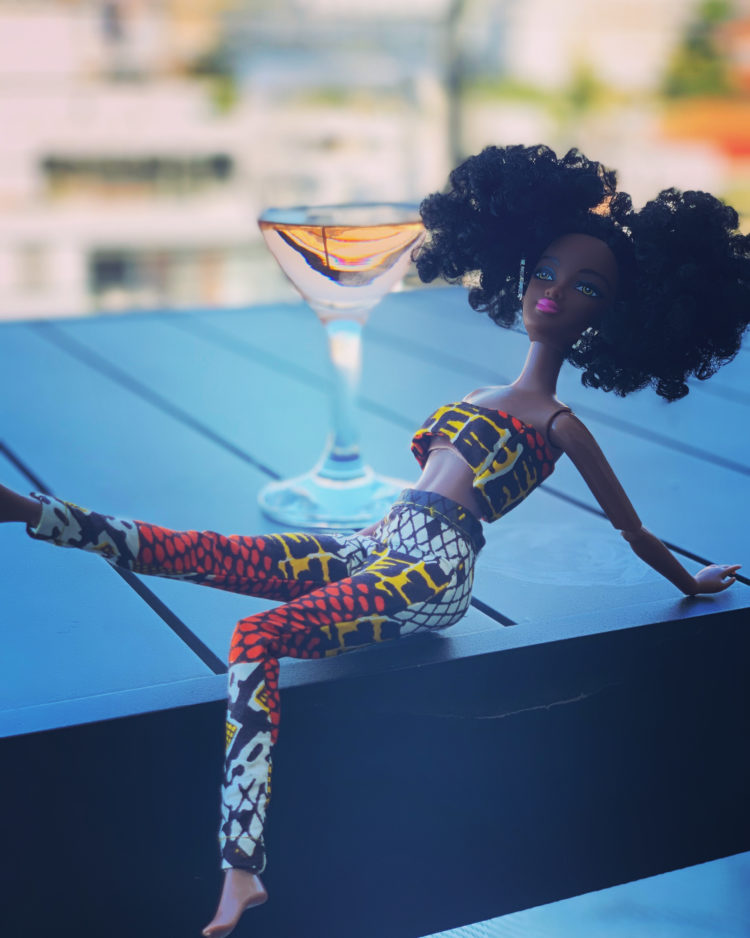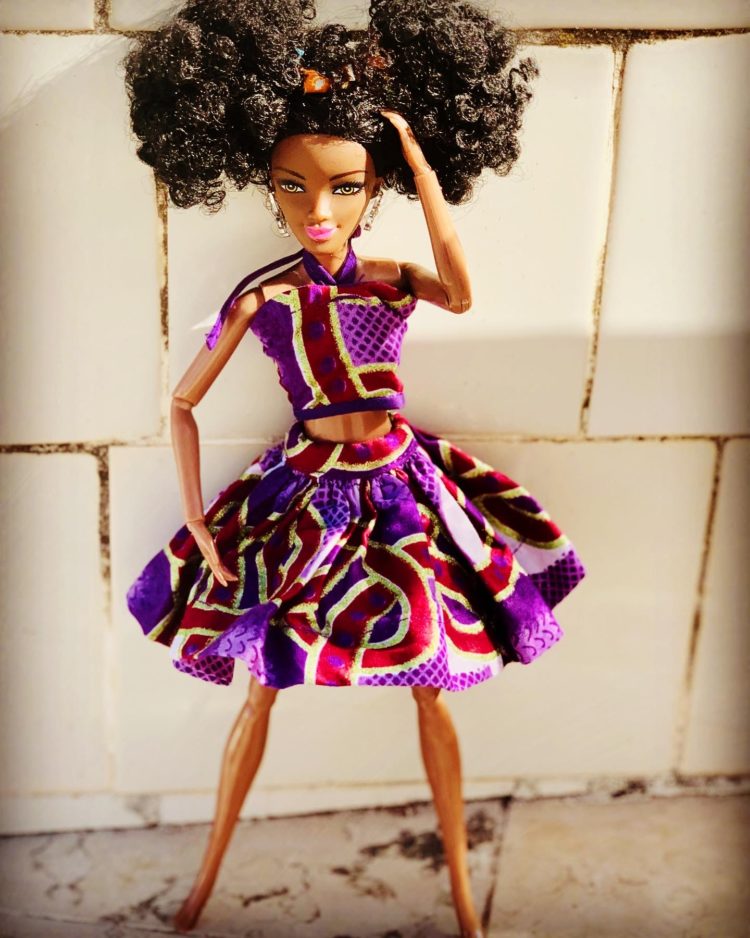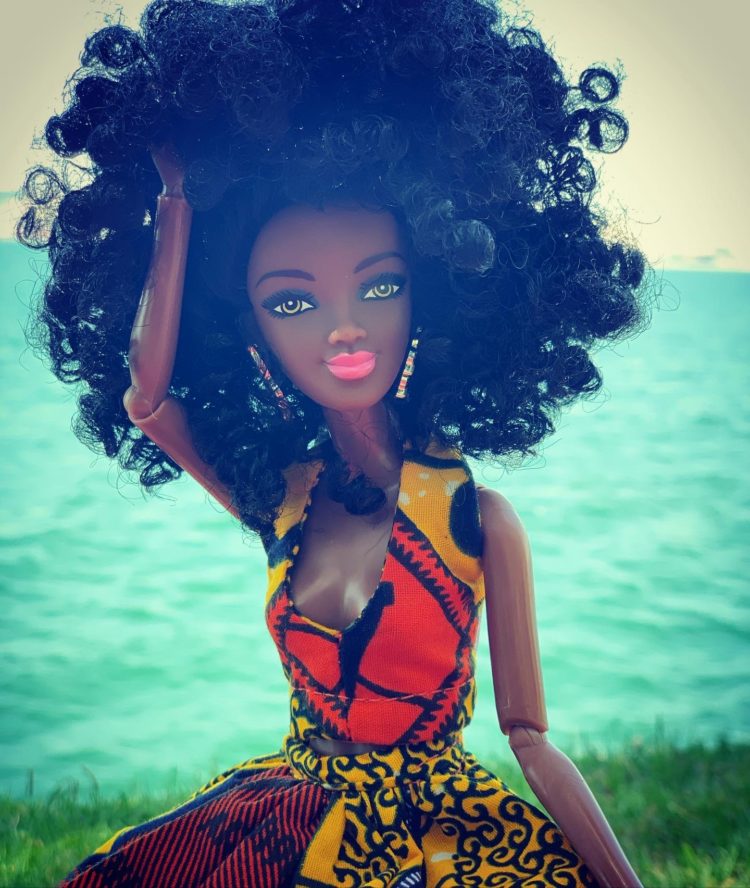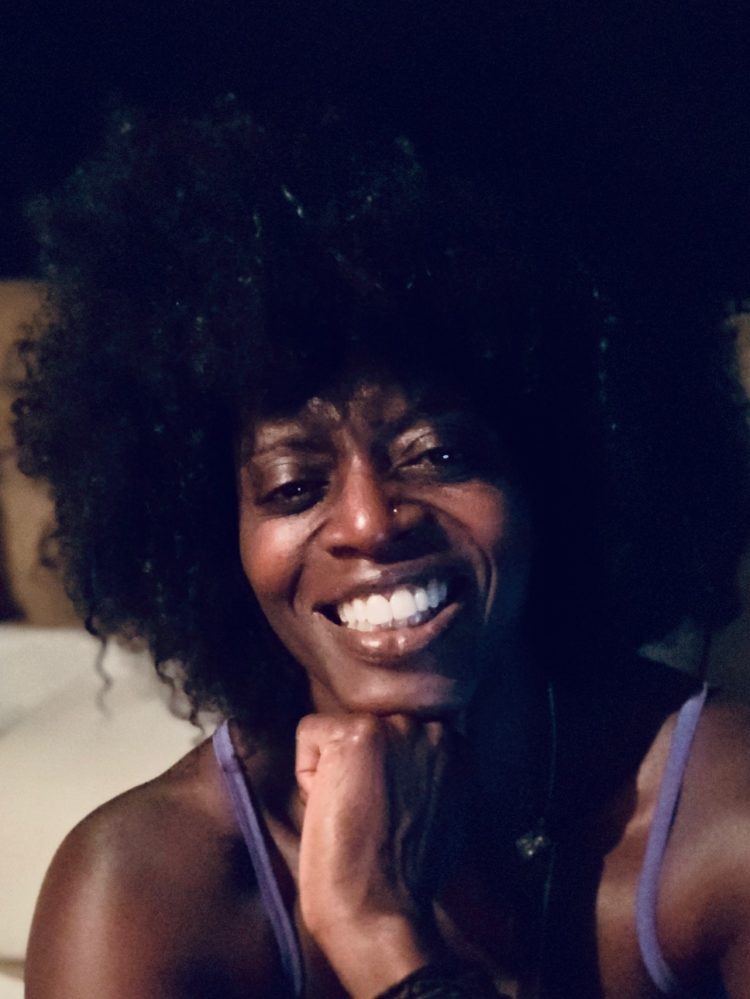I launched this company after an interesting conversation I had while having a drink with a family member of a Portuguese friend. That man owned a toy shop in Angola. As an executive search firm owner, I have heard many stories related to various professions, but never something like this.
I began asking him questions about different toys I remembered from my childhood, and at one point we got to Barbie.
Me: “Do you have Baaaarbieeee?”
Pedro (smiling): “Yes. We sure do.”
Me: “Dooo you have a black Barbie?”
Pedro: “Nope.”
I repeated the second question, wondering if he misunderstood me because of my Portuguese mispronunciation. He smiled, and let me know he got it, repeating “Nope.”
Me: “In Africa, Angola Africa, you don’t have black Barbies?”
Pedro: “No, we do not.”
Me: “Why? Why is that, and how is that?”
Pedro: “Little black girls in Angola do not want black dolls. They find white dolls more beautiful so they all want to have white dolls.”
This conversation brought 50 million questions to my mind, and I couldn’t be beyond repeating “why” the whole time. This took my smile away and nearly brought me to tears. I felt embarrassed hearing this from him because he was not a black man. I needed to fix this. I got to work.
There is a Togolese proverb which states, “Your tears do not blind you.”
I launched Cheza the next day over a phone call with my childhood best friend. It was initially called “Chicks Incorporated” but I changed the name of the company in 2018 as it translated incorrectly in African markets. As a bullied dark-skinned little girl, this lack of self-esteem disturbed me to my core.
I also wondered what little girls who thought this way felt when looking at their African mothers. She is your first hero, your first friend and your first role model, and the fact that many girls still feel like white dolls are prettier confirms that there is much work to be done.
Later, we launched the clothing brand “NtaadeE.” It started when I asked our family seamstress Lizzy to dress a black doll I found in a shop. At first, Lizzy laughed, and said, in Twi, “Eeeeh Adjoa, businesswoman! You!” I told her I was serious. “I have an idea. I don’t mind what color or what look but just make her something. Please?”
I returned four hours later, after getting my hair braided, to find she had a very warm Ghanaian smile on her face and had also made not one but four different adorable outfits.
“Ah-ha,” I said. “Now, we are in business. Let’s go!” She hand crafts each of our outfits. We are now aiming for quantities that will soon be too much for her to handle, but we are not there yet. She has my first Kukua doll sitting next to her and each outfit is made to fit.
She dresses her after each batch of 100 pieces and sends me the pictures when I am not on ground. She truly loves making them and it provides her with an extra source of income. I love this part of the business, the giving back part.
My company is purpose-driven. It’s about bringing life, along with learning and pride, to playtime. It’s time for us black people to drive our own narratives so that our little girls feel proud to be black, to be African. They need to understand where that pride comes from, and why it is valid. This is the concept of “disruptive playtime.”
Cheza Toys Inc was launched in May 2018, after four years of planning and creation. People involved in the launch were in Europe, in Ghana, and other places where my small team lives. Cheza is a Kwisahili word that means “to play.” I have launched an African toy company that will help children in the diaspora and on the continent drive an African narrative.
I always say that Cheza is a toy company, and not a doll company. We are currently working with product developers to help us bring to market additional learning toys, including a “Kofi” doll in the first quarter of 2021. He is sure to be someone for Barbie to love.
We have also started a media company where we are developing animated films as well as other content for this space. It’s all based based around the misadventures of our Kukua doll. Ours is a cross-cultural creative team. The rest is, as they say, history.

